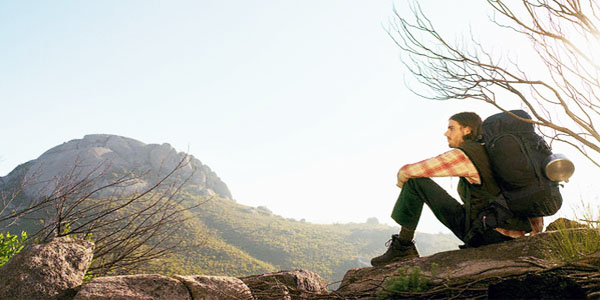MUST KNOW SECRETS FOR TRAVELING IN INDIA
India is such a large, intriguing and a diverse country that it can be a major culture shock for a traveller, especially if one is visiting for the first time. Any visitor to India is stunned by the richness of the land, by its lush beauty and exotic architecture, by its ability to overload the senses with the pure, concentrated intensity of its diverse colors, smells, tastes, and sounds. The country, though overwhelming for first timers, also has its chaotic side.
It is therefore wise to be mindful of local laws, customs religions and cultures Here are some tips and insights to get the most out of your trip.

"All you need to do is relax, enjoy and experience the Incredible India."
YOUR TRIP
1. VISAS AND VACCINATIONS
2. WATCH WHAT YOU EAT AND DRINK
If you are visiting India as a traveler, you should sort this out at the beginning of your travel and if you are extending your stay. Do immunize yourself against various diseases like typhoid, malaria, hepatitis and tetanus that are prevalent in India. Do take whatever medications you need in ample supply. Have your passport with you at all times
Tummy rumblings are something that most first timers suffer from. This is just because of the difference in composition of food most Indian foods can be heavy. Do not drink local tap water, drink bottled water only. Do not eat fresh fruit and vegetables that you cannot peel. You must keep in mind not to eat raw food, especially from the streets. Try the Indian food gradually. Water is certainly an easy carrier of germs, so stick to mineral water bottles or boiled water! 3. TRANSPORTATION
Do not try to explore Indian road yourself, or to drive in India unless you have been trained on Indian roads. Always purchase air, rail or bus tickets through authorized travel agents or tour operators and avoid persistent touts and taxiwallahs at airport/stations/bus stands. In case of taxis and auto-rickshaws, try to hire them from the pre-paid booths if possible. Otherwise, insist on going by the meter or set a fare in advance. Use tourist assistance desk for proper advice. Trains are a great way of seeing the Indian cultural and physical topography. For long travel, the best way is train. For an overnight trip, the best arrangement is via " AC Sleeper " , where you will be provided with a blanket, sheets, pillow, and towel, and you will have a sleeper berth. 4. DRESS CONSERVATIVELY
Do dress modestly if you are female. No sleeveless blouses, no short skirts, no shorts, no low, loose collars. India has a relatively modest culture and covering arms and legs is a simple step toward respecting this. Indians are forgiving of those who aren't familiar with their culture, but you can quickly make a good impression by, for instance, removing your shoes before entering someone´s home. This is particularly important when entering a sacred space, like a temple.
5. AVOID BURNOUT
By far the most common complaint reported by first-time visitors to India is fatigue - simply trying to do too much in too little time. A wisely planned visit to a particular area, can offfar more of the unique texture and spirit, of the place. India is vast, colourful and addictive, but has realistic expectations about how much you can see. And remember you can return time and time again.
6. PROPER USE OF FEET AND HANDS
Feet are considered to be unclean in India, so if you touch something with your feet it's appropriate to quickly apologize. Do not use the same hand for eating and also for taking food from a common dish on the dining table. Indians believe other people’s saliva is unhygienic. Do not offer to shake the hand of a person of the opposite sex unless they offer first. Do not walk over books and paper, even newspaper or even touching them with your feet, as Indian people treat books as a metaphor for the Goddess of learning. Do not break temple rules while on a visit to a temple. Feet, particularly shoes/sandals, are considered unclean, always take them off when entering a temple.
7. GET OUT OF THE CITY
One way to get a true sense of India is to visit smaller villages. The real benefit is that it´ll get you out of the sprawling and vastly overpopulated cities. Once you´ve cleared your head, say with a trip to the mountains or into the slower-moving land of Kerala in the south, you'll be far better placed to enjoy the famous hospitality of the Indian urbanites.8. REMEMBER THAT INDIAN TIME IS RELATIVE
You may well find yourself waiting half an hour in India when your friend has assured you they will be five minutes. Traffic and other interruptions can also mean that getting around can take a lot longer than expected. Plan for unexpected waits and make sure to check opening hours - many government offices and shops close in the afternoon for lunch.
9. BE PREPARED FOR NOISE
10. AVOID DEALS THAT SEEM TOO GOOD TO BE TRUE
The noise on the streets is something that many travelers cannot seem to fathom. Also, there is generally low regard for personal space and people are quite loud in public places. If traveling alone and you want some quiet time, rely on a good set of ear-phones to shut out some of the surrounding din. This will also help to fall asleep in overnight trains and buses.
Government shops are probably the easiest way to avoid foul scams. Simple rules like paying for things with cash, to avoid card cloning scams, helps. You should also pay particular attention if you're arranging to have things sent home by post, as it's not unknown for shops to take your payment and send worthless items instead.
11. STAY SAFE
Avoiding traveling by public transports or walking at night are rules that one would follow anywhere around the world. While "don't go down dark streets alone" might seem a bit obvious, there are plenty of straightforward ways to avoid subtle dangers in India. Carrying huge quantities of cash isn't a good idea anywhere, but in crowded Indian cities pickpockets are on the lookout for opportunities. Avoid unpleasant and heated exchange and don't allow yourself to be irritated.
12. MONEY EXCHANGE
With an exception to really small towns, access to ATMs and international banks is quite easy. Most places also accept MasterCard and Visa credit cards. Carry a reasonable amount of cash and then withdraw regularly. For long stay travelers, opening a bank account is impossible.
13. MEDICAL EMERGENCIES
One must carry a nonbulky first aid kit but for more elaborate medical health, good hospitals are available easily in the large cities. If you are visiting a small town, make your way to the closest city and then seek medical help.
14. SINGLE WOMAN TRAVELLER
Use your discretion while interacting with people. that applies in India as well. Try and stay at homestays in smaller towns, rather than hotels as your hosts can offer large amount of security and help!
15. TRAVELLING WITH CHILDREN
Children, in most cases, adapt easily and are spontaneous and not cynical while having fun. Do not fret about their safety or handling new food and culture! Stick to mineral water and non-spicy food and they should do well. They might be subjected to some amount of cheek-pulling and fascination in public places be firm but polite to avert this!


